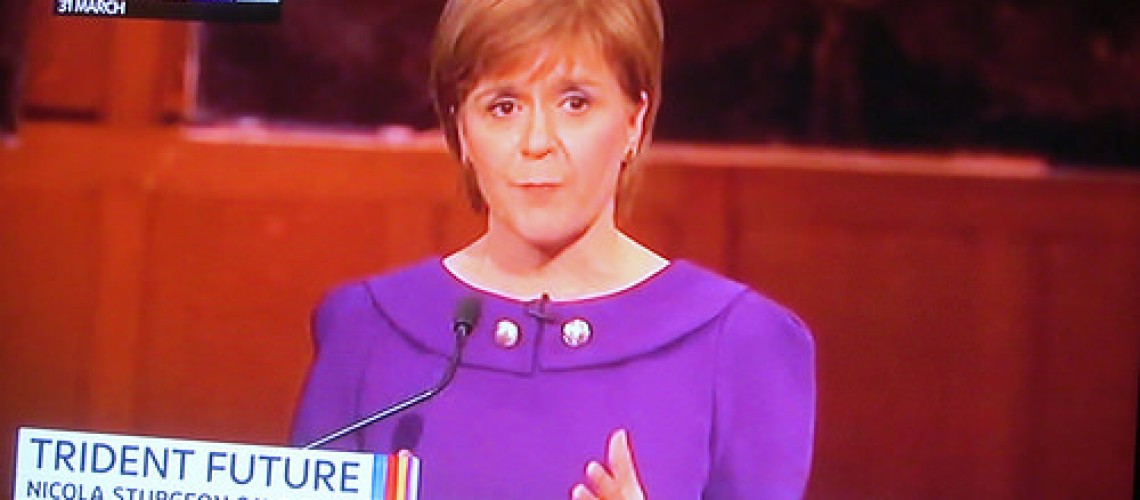One of the early and most enthusiastic supporters of the Electoral Reform Society was the Rev Charles Dodgson, aka author Lewis Carroll.
The ERS has been arguing for proportional representation since 1884, and for all that time they have been viewed as little more than well-meaning cranks.
The Liberal Democrats, of course forced a vote on the issue during the last Parliament, but by then they had shown how nastily Machiavellian, unprincipled and two-faced they were when in power. As a result, many people voted against them rather than the issue at stake. The baby was well and truly thrown out with the bathwater.
Yet what we now seem to be entering as a result of our rigid allegiance to the first-past-the post-system is an Alice Through the Looking Glass world in which 1.5m SNP-voting Scots (out of a registered UK electorate of 46m) could well force us into another kind of nightmare: a reversion to 1930s-style Marxism.
So has as the time come to think of abandoning our current voting system? This is not going to change Thursday’s poll, of course, but the issue could assume crucial importance in the horse-trading that ensues.
One factor in the political landscape that has changed massively over the past five years and is obviously centre stage in this ballot is the huge surge in support for SNP.
This means that the 51% of Scots who now seem likely to vote for the party in the 59 Scottish Westminster seats are likely to hold massive, disproportionate clout. Because SNP support is concentrated in relatively few seats, the first-past-the-post system means they will win. Put another way, around 4% of the electorate could – and would, as Nicola Sturgeon has boasted about – hold the UK to ransom.
This will be – despite Ed Miliband’s protests to the contrary – either as a coalition partner or as a large street-fighting, self-focused, independent faction whose primary purpose is to smash asunder the United Kingdom. The meaning of the Glasgow Kiss will take on a whole new dimension.
They could paralyse a governmental process that has primarily grown round a gentlemanly two-party system and has never encountered such a set of circumstances before.
The other major change is an equivalent rise in support for UKIP. Largely because of the massive negativity towards the party by the media, and especially the BBC, their support now seems to be softening from the 15% that persisted throughout the campaign. But even if it falls back to 10%, it is likely that between 2m and 3m voters will support Farage and his rag-tag army.
The contrast with SNP here could not be sharper. Because of the first-past-the-post system, and because support for UKIP is attenuated across England, even if UKIP achieves double the vote of the Tartan Army, it will win on latest forecasts only a maximum of five or so seats.
In turn that will mean that the issues that it supports – the return of grammar schools, withdrawal from the EU, and end to the insane climate change alarmism and stricter immigration controls – will be totally ignored by the other parties. And put the other way round – three million votes will have very little influence, to the point almost of being disenfranchised.
The problems with our current voting system go much deeper. Voter apathy was so extensive in 2010 that 35% of the electorate did not vote(compared with 22% in 1992). So David Cameron attracted 36% of the votes cast but the support of only around a quarter of the total electorate.
If this pattern continues next Thursday, it could mean that Labour and Conservative combined win the support of less than half of electors.
Sooner or later, that’s a democratic deficit that will cause friction. Just how is, of course, impossible to predict. Almost certainly, however, the English in the South-east, will be increasingly resentful of the Jacuzzis of public cash that already go north of the border. At the same time, the legions of voters who are concerned about the pressures of immigration and have no means of expressing their views other than via Ukip are going to become increasingly discontent.
The unfairness of our voting system means that those that rule us are increasingly out of step with the wishes of the electorate. All the lessons of history –from the Boston Tea Party onwards – suggest that this is a recipe for serious civil unrest.
As Walter Bagehot first noted when he wrote his masterful book on the British Constitution in the 1860s, our system of government worked because it was not written down in formulaic fashion. It continually adapted to changing circumstances.
His analysis of the constitution was of course long before there was the juggernaut of the EU at its heart lucking away the power and disenfranchising voters in a different way. But the threat posed by the SNP is another massive challenge and unless the Constitution now evolves to cope with this massive imbalance, we could be entering very dangerous waters indeed.
Voting reform may seem a very left-field response, but in this Carollian2015, Looking Glass world, it may be the recipe needed. Both major parties adhere to first-past-the-post because it has given them leverage to create majority governments. Even in Tony Blair’s ‘landslide’ of 1997, he attracted only 43.2% of the vote (compared to 30% for the Conservatives). In the pre-UKIP and SNP world, this did not matter as much. It does now.


